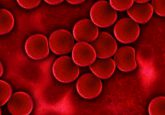Test could anticipate a patient’s response to arthritis drugs

Researchers from the University of Manchester (UK) have determined that it may be possible to predict whether rheumatoid arthritis (RA) patients will respond to therapy with biologics. RA is a chronic disease which represents a significant health burden for patients, and the findings of this study could assist patients to better manage their symptoms.
Biologics are a relatively new option for treatment of RA, delivered by injection, and usually given in combination with an anti-rheumatic. They function by preventing particular chemicals in the blood from activating the immune system and attacking the joints, and have improved the long-term health of patients with RA by reducing joint damage and disability. However, for approximately one in five patients the treatment is ineffective after a few months, sometimes due to the patient developing novel antibodies, which limit the therapy’s efficacy.
It was previously assumed that the best time to detect these antibodies and measure drug levels in the blood would be immediately before the next dose is due, but this a complicated approach to use clinically as patients take their dose on different days and at different times. The team from the University of Manchester, however, has demonstrated the efficacy of testing at random times.
Meghna Jani, lead author of the work, explained, “Our study demonstrates detecting low drug levels in rheumatoid arthritis patients on adalimumab, one of the most commonly prescribed biologics, was the strongest factor associated with non-response to treatment over 12 months. This test is easy to perform in a hospital setting, and could provide useful information on how to manage a patient whose rheumatoid arthritis is not being controlled by adalimumab.”
Anne Barton, co-author of the study, outlined the team’s ambitions for their work: “The next step will be to explore whether it is cost-effective to use these tests routinely in clinical practice, so that we can adjust treatments in those patients with low drug levels and anti-drug antibodies.”
Source: New test could predict arthritis drug failure in patients.





